Mark Fernald’s maple syrup named best for third time in Ledger-Transcript contest
|
Published: 04-08-2024 12:22 PM
Modified: 04-09-2024 12:16 PM |
Mark Fernald of Sharon took home his second consecutive win and third overall among the judges at the Monadnock Ledger-Transcript’s 42nd annual maple syrup contest Saturday.
The event was held at the Bantam Grill in Peterborough, where attendees had the opportunity to sample and rate syrup from local maple producers from around the Monadnock region.
“It’s an honor to win again. It’s a lot of work, so it’s nice to get that recognition,” said Fernald, operator of Spring Hill Sugar House. Fernald also won in 2009 and 2023 and has an additional three second-place finishes under his belt from previous years.
At the judges’ table this year were former Yankee Publishing editor Ben Watson, longtime PBS host Roger Swain and Cornucopia Project founder Kin Schilling. All three judges said they enjoyed every syrup they sampled this year, and the final decision ultimately came down to minor flavor differences between them.
“Everyone who’s entered should be proud,” Swain said, a statement that Schilling echoed during the announcement of the People’s Choice vote.
Event attendees seemed to agree, as every syrup entry received at least one vote in the People’s Choice category. As a result, there was a three-way tie for second place between Fernald, Scott Kemp’s Rindge-based Maple Row Sugaring, and Reuben Somero’s amber syrup from Somero Maple Farms in New Ipswich, last year’s People’s Choice winner. First place went to Cutter Mill Works’ Ronald Barrette, who also won second place overall with the judges.
During the sampling, Swain went into some detail about his tasting process.
“You want a very clean taste,” he said, adding that the after-taste was important to consider. “You’re looking for any off flavors.”
Article continues after...
Yesterday's Most Read Articles
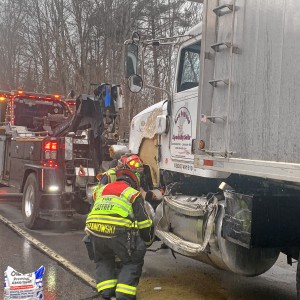 UPDATE: Drivers identified in Jaffrey dump truck crash
UPDATE: Drivers identified in Jaffrey dump truck crash
 Scott Bakula starring in Peterborough Players’ ‘Man of La Mancha’
Scott Bakula starring in Peterborough Players’ ‘Man of La Mancha’
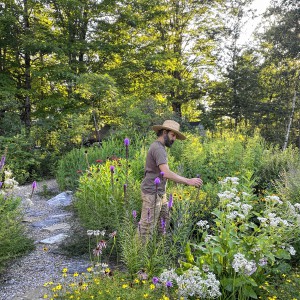 Fassett Farm Nursery in Jaffrey focuses on native plants
Fassett Farm Nursery in Jaffrey focuses on native plants
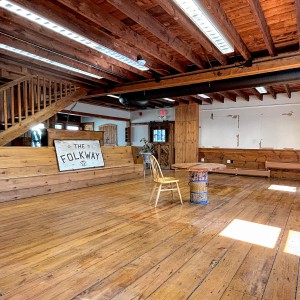 Former home of The Folkway in Peterborough is on the market
Former home of The Folkway in Peterborough is on the market
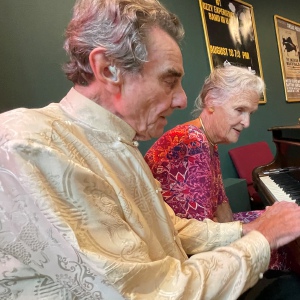 Bernie Watson of Bernie & Louise dies at 80
Bernie Watson of Bernie & Louise dies at 80
“Off flavors” can come from any number of things, but mostly mistakes made during the sap-boiling process, which can create a lot of foam. To keep the foam from overflowing, maple producers add a small drop of oil, which reduces surface tension and calms the foam. Swain humorously recounted that one of last year’s entrants reminded him of movie theater popcorn because a new producer had used a bit too much butter to calm the foam during the boiling process.
There were fewer entries in this year’s contest compared to last year’s, with some producers attributing it to an abnormally warm winter. Fernald said weather fluctuations during the typically four-week maple season made this year’s production especially challenging, with one week being too cold, and one being too warm – resulting in less-than-ideal conditions for collecting maple sap.
The outside temperature is key to producing maple syrup. During the late winter and early spring, the regular transitions from cold nights to slightly warmer, above-freezing days cause the maple tree to generate sugars, which are transferred into its sap as it begins to flow. However, long periods of exceptionally cold or abnormally warm weather will interrupt this process, resulting in sap with little to no sugar content – which doesn’t make for very good maple syrup.
Roger Somero, whose sons Reuben and Peter operate Somero Maple Farms, said that maple sap with low sugar content was a problem this year, and many producers had already finished their seasons or had given up entirely.
“The weather got kind of warm, so a lot of people quit,” he said. “There’s a couple people that I’ve seen that hadn’t been getting sap until the last snowstorm. But a lot of people quit because they figured the weather was getting so warm, production would stop – but it really didn’t.” He added that they might see another few days of sap production after last week’s nor’easter, but that tree buds were about ready to pop, so the season was effectively over.
“We only kept going because we ended up having some sap in our pan still – so we checked our buckets and found that there was more,” said Tammy Hannu, whose backyard operation included between 130 and 140 taps this year. They ended up with 11 gallons of syrup this year, compared to last year’s 16 gallons.
Both Hannu and Somero noted they had begun tapping their trees this year at the beginning of February, earlier than ever before.
Swain attributed the increasingly unpredictable maple season to climate change, and said that the ideal “sugar maple zone” was shifting further and further north. At the current rate, Swain said New Hampshire’s climate could be comparable to South Carolina’s in the distant future, which he joked isn’t exactly well-known for its maple syrup.

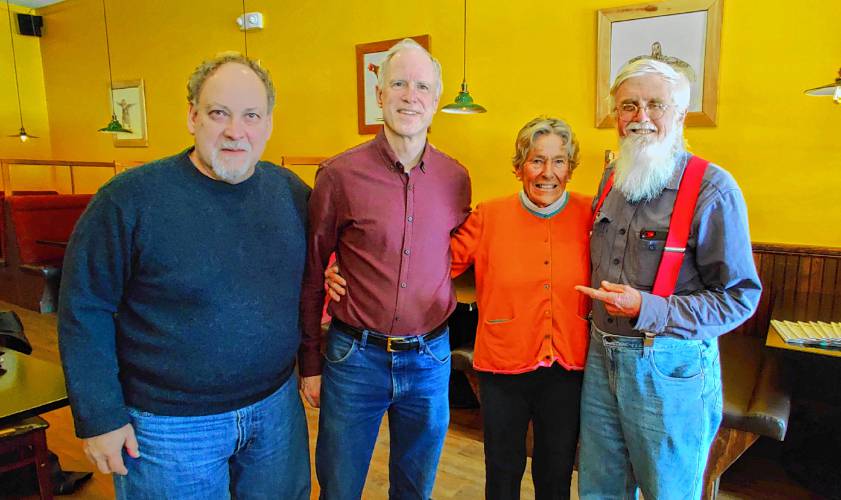
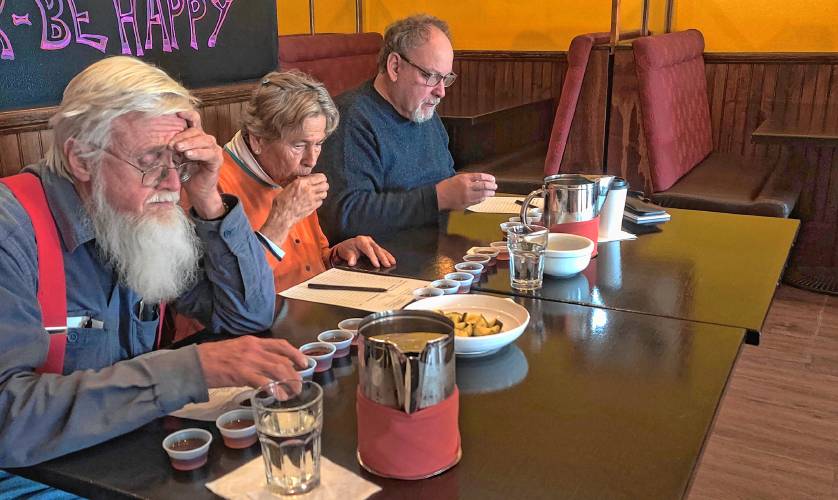
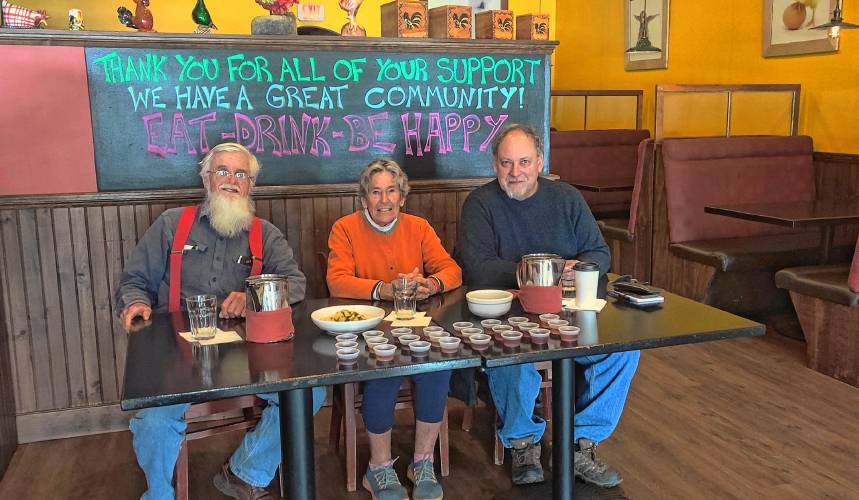
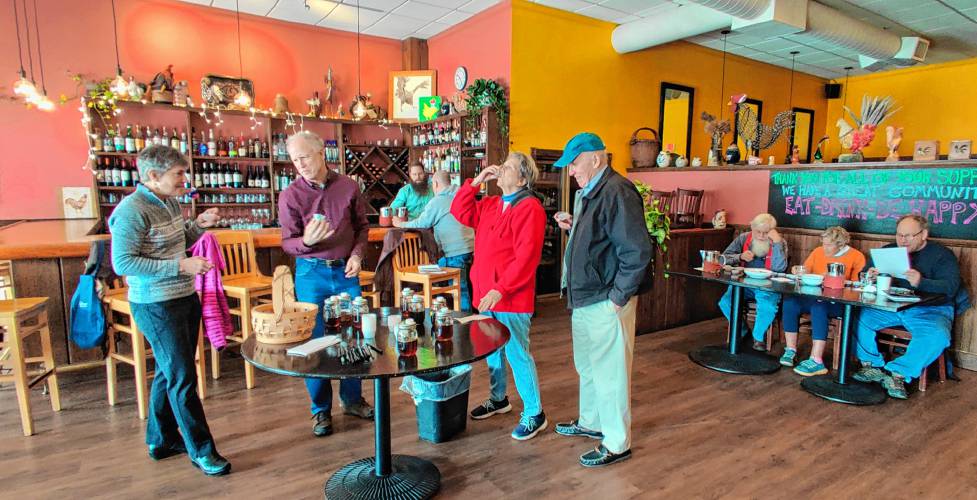
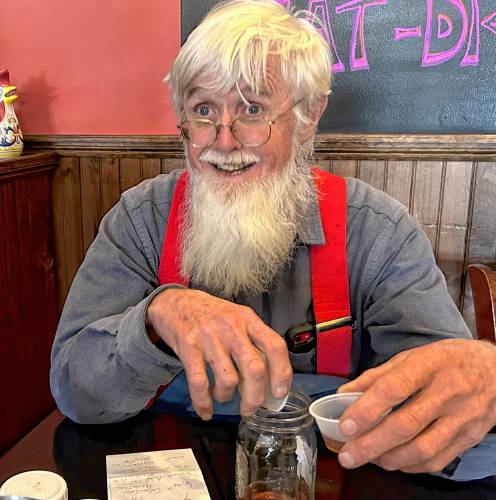
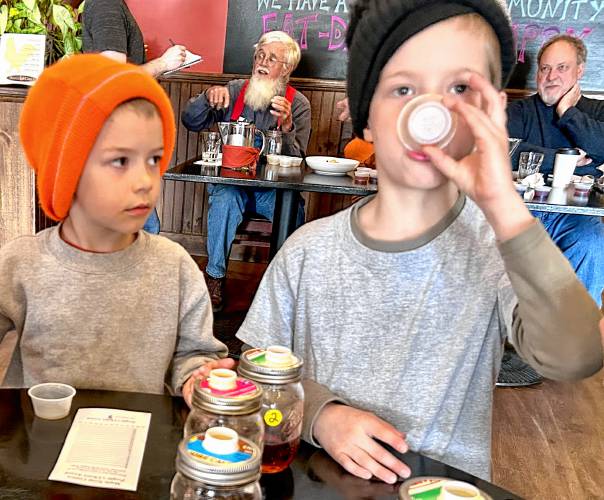
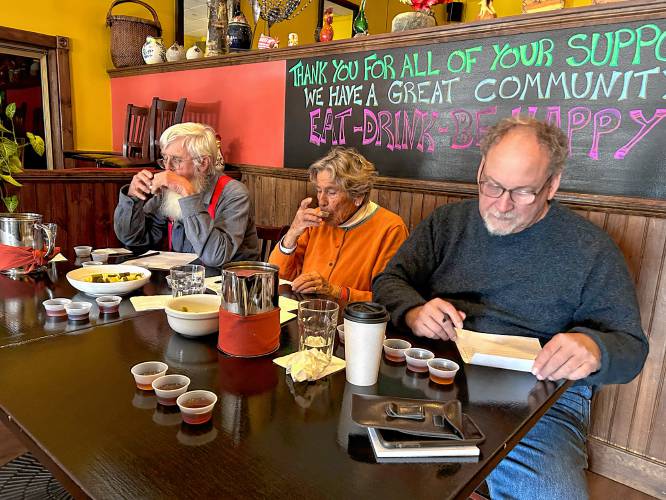
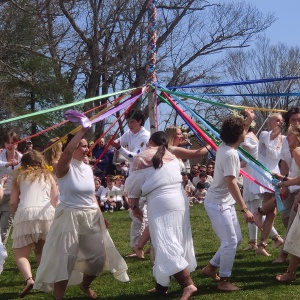 High Mowing School in Wilton holds May Day Festival
High Mowing School in Wilton holds May Day Festival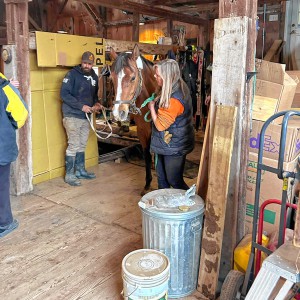 New Ipswich firefighters called on to rescue horse
New Ipswich firefighters called on to rescue horse PHOTOS: A night at the sock hop in New Ipswich
PHOTOS: A night at the sock hop in New Ipswich
